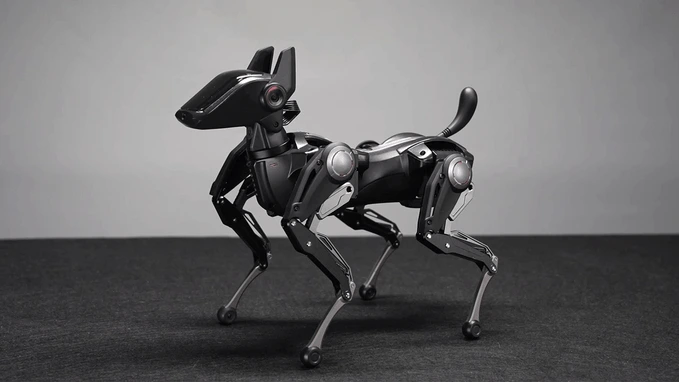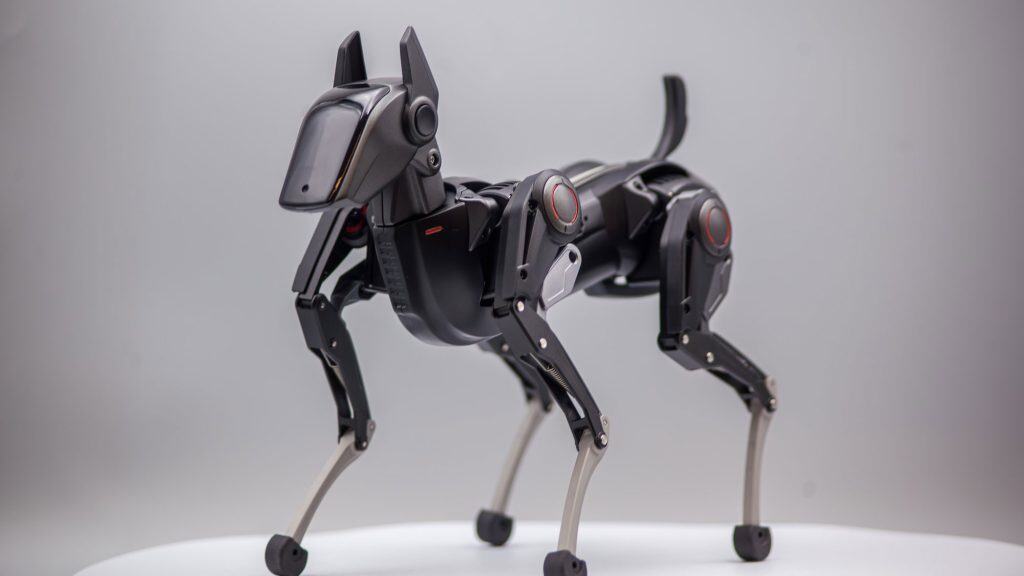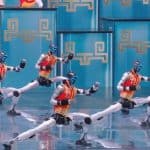Hengbot Unveils Sirius: A Smart, Programmable Robotic Dog with Personality
Share
Consumer robotics is taking another leap forward with the launch of Sirius, a sleek, AI-powered robot dog developed by Hengbot. Aimed at hobbyists, educators, and tech-savvy families, Sirius is more than a novelty—it’s a customizable, programmable, and emotionally engaging machine designed to mimic the movement and personality of a real dog.
Hengbot introduced Sirius during CES 2025, where it drew attention for its agile movement and surprisingly lifelike behavior. Unlike traditional toy robots, Sirius isn’t just pre-programmed to follow a script. Instead, it features 14 degrees of freedom through Hengbot’s proprietary actuators, allowing it to run, crouch, and turn with impressive fluidity. The lightweight, aluminum-alloy frame weighs only 1kg, making the robot highly mobile and safe for indoor use.

At the core of Sirius is a powerful edge AI system capable of processing voice commands, recognizing faces, and reacting to hand gestures. It’s built to learn and adapt, responding differently based on tone or interaction over time. According to Hengbot, this technology allows Sirius to simulate a range of emotions and behaviors, helping it build a bond with users.
But perhaps the most appealing aspect of Sirius is its programmability. The robot comes with a visual drag-and-drop coding platform where users can build custom behaviors, responses, and even routines like dancing or posing. For more advanced users, the system is compatible with ROS 2 and supports USB-C extensions, opening doors for third-party sensors, cameras, and processing units like NVIDIA’s Jetson Orin.
Hengbot also offers a unique layer of personalization. Owners can choose different “personalities” for Sirius through software modules that affect its voice, facial LED expressions, and even how it reacts to commands. The company also encourages 3D printing of custom shells, letting users physically alter the dog’s appearance.
The launch is being met with growing enthusiasm. Hengbot reported over 3,000 beta testers and 600 pre-orders before the public campaign even began. Early adopters include educators planning to use Sirius in STEM curricula and tech hobbyists keen on experimenting with its open API.

While early hands-on reviews have praised its movement and personality, some testers noted room for improvement. A few mentioned occasional issues with balance on uneven surfaces, as well as minor delays in voice recognition when multiple commands were issued rapidly. However, the consensus is that Sirius offers a solid foundation for interactive robotics, especially at its price point.
Sirius will first roll out via Kickstarter, with prices starting at $699 for the basic consumer model and scaling up to $1,059 for a full-featured educational kit. The robot is expected to ship globally by the end of the year, with Hengbot offering free shipping and customs duty waivers for early backers.
As the consumer robotics market continues to evolve, Sirius marks a notable shift—from novelty robots to machines designed for dynamic interaction, learning, and play. With its balance of technical sophistication and playful design, Hengbot’s robotic dog is poised to become a popular fixture in homes, classrooms, and maker labs alike.
What’s Next?
With open-source capabilities and a growing user community, Sirius may soon gain new skills beyond what its creators originally imagined—from autonomous navigation to home security features or therapy-based companionship. As Hengbot continues to refine its AI and expand compatibility, Sirius could very well become a model for what future consumer robots should aspire to be: functional, emotional, and open to imagination.


Our Social Media
Follow Us Follow Us Follow Us